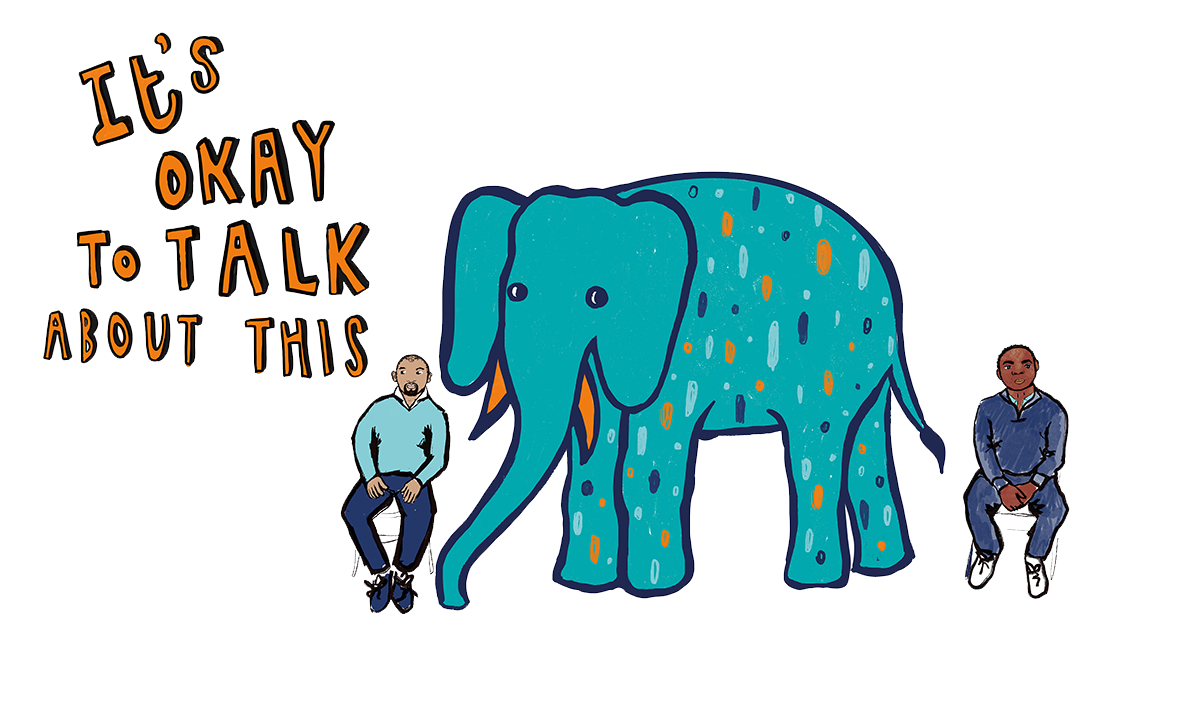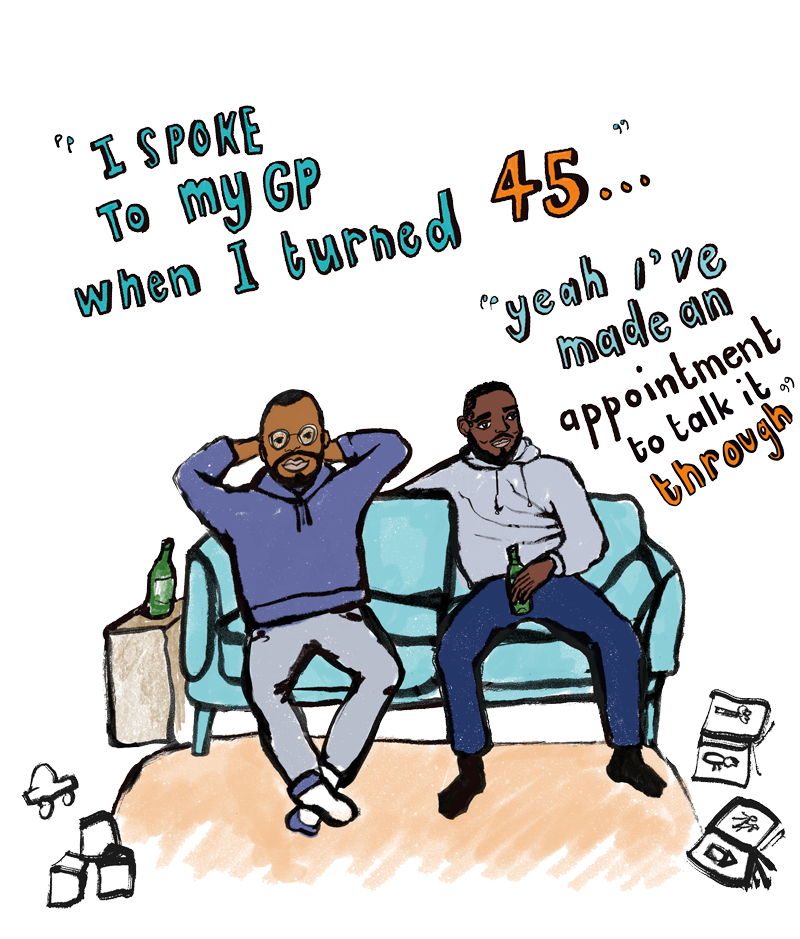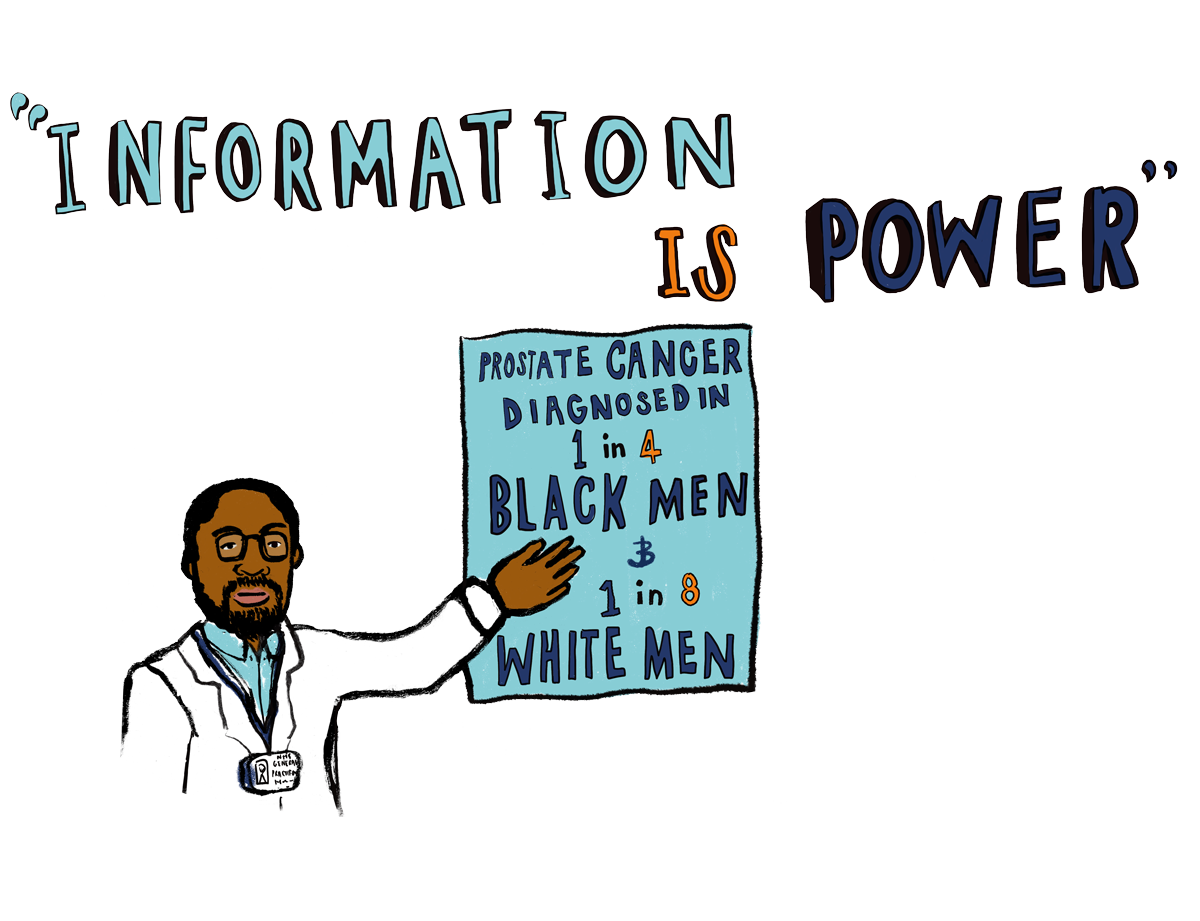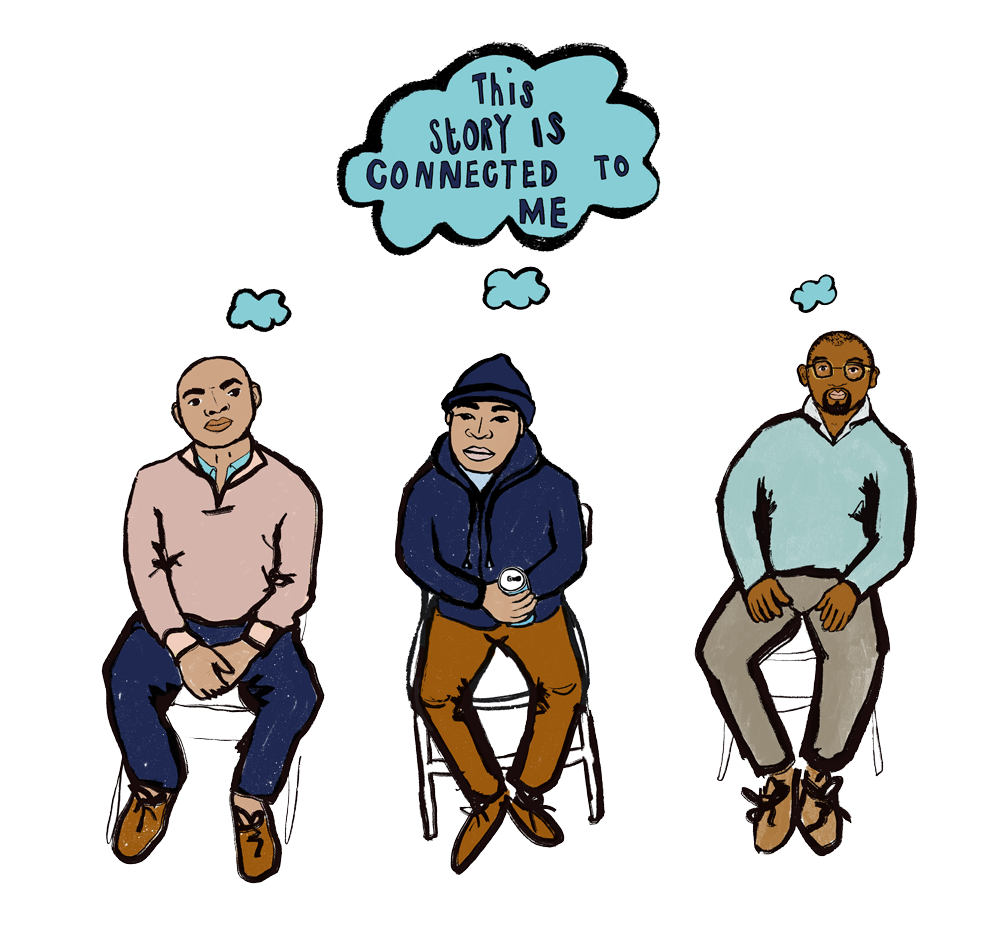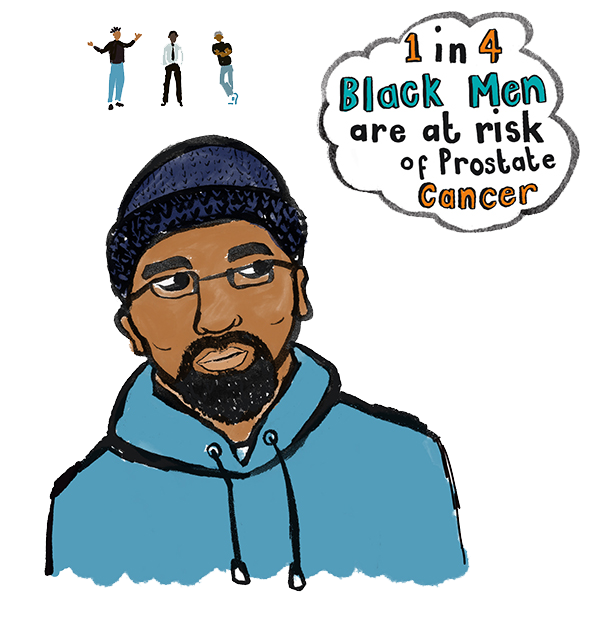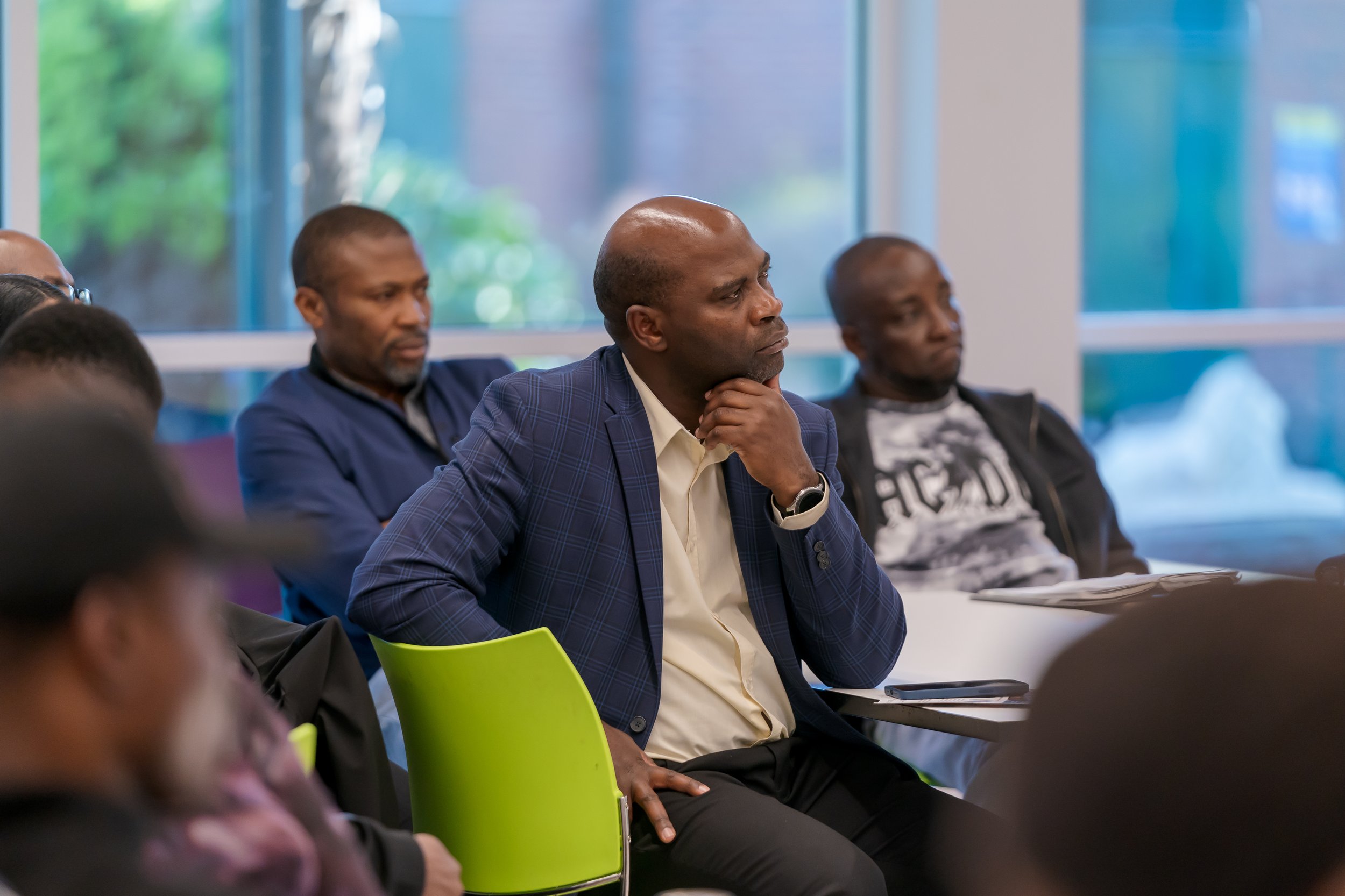The PROCAN-B study: Early diagnosis of PROstate CANcer for Black men
The PROCAN-B study, funded by Prostate Cancer Research, builds on the IMCAN study.
The PROCAN-B study however, focuses on raising awareness of prostate cancer risk and encouraging earlier help-seeking among Black men in the UK.
We know that Black men are twice as likely to develop prostate cancer, and twice as likely to die from it, compared to White men. That’s why it’s so important for Black men to be aware of the risk of prostate cancer. These unfair and avoidable differences are known as health inequities.
In 2022, we partnered with Black communities in the North East of England and in Scotland and together developed a workshop to raise awareness of the risk of prostate cancer and encourage men to discuss prostate cancer and potential testing with their doctor.
Study duration: September 2022–November 2024
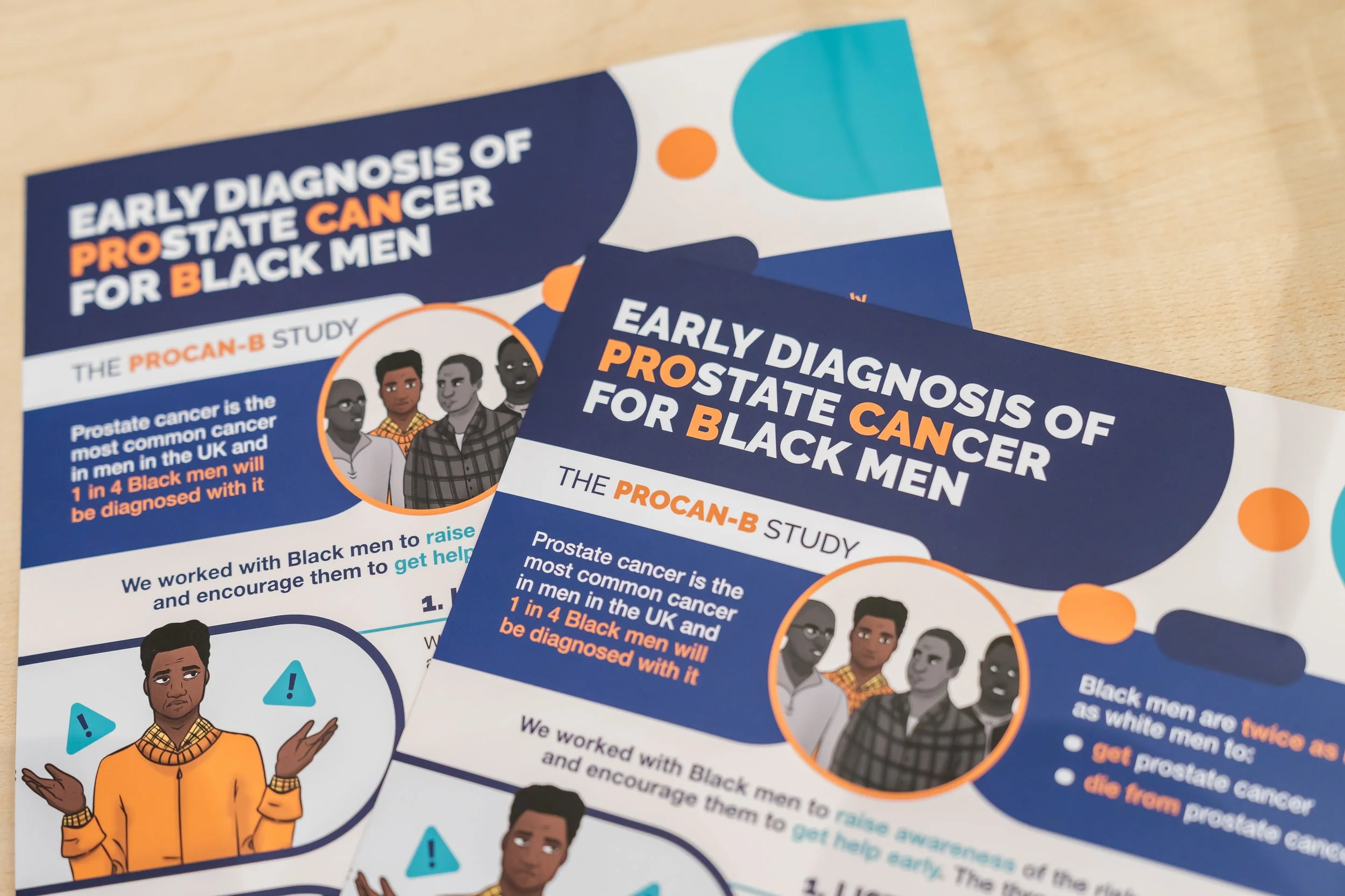
How we designed and delivered this study
1. Listening first
The first step involved listening to the voices of Black men. The team spoke with 13 Black men from North-East England and Scotland to understand what makes it difficult to visit the doctor about prostate cancer. The men identified several challenges:
not knowing about the risks of prostate cancer for Black men
finding it difficult to talk about sensitive issues like these
having difficult experiences with healthcare, like racism
not trusting the doctor and not feeling heard
the men said their faith could encourage them to trust doctors and get checked early for prostate cancer
2. Co-producing the workshop
Using what they learned, researchers worked in partnership with these 13 men to design a tailored workshop. The workshop included:
small group discussions about prostate cancer and barriers to getting help
a talk from a Black GP about the disease and the health check process
videos of Black prostate cancer survivors sharing their stories
activities to help men prepare to speak to their GP
discussion about the role of family and faith leaders in supporting men’s health
a warm, informal setting, with good food and friendly conversation
3. Black men delivering the workshop
We trained and supported the 13 members of the Black community to deliver the workshops, so that they were run by Black men, for Black men. A total of 62 men took part in four workshops across North-East England and Scotland.
Led by peer-facilitators
1. Peer-led discussion about challenges to prostate health check
2. Health education with Q&A led by a Black GP
3. Testimonials from community members discussing prostate cancer (videos)
4. Activities to overcome challenges when accessing healthcare and questions to ask the GP
5. Staying healthy and looking after one’s health for the family (video)
6. Religious perspective from religious leaders (videos)
7. Food, music and time to connect
4. Capturing feedback after the workshop
After the workshops, the research team ran focus groups to gather feedback, and 41 men filled in questionnaires before and after attending. These helped assess whether the workshops increased understanding and confidence.
The response was overwhelmingly positive.
Many men described the workshop as an "eye opener".
They said it helped them understand the risks and made them more likely to take action.
The statistic that 1 in 4 Black men will get prostate cancer (compared to 1 in 8 White men) had a powerful impact.
They said they liked how the workshop was led by Black men, for Black men. This offered a free and comfortable environment in which they could ask questions and learn together. That made them think this information was right for them.
They particularly liked having a Black GP there, who they could trust.
They also found the inclusion of videos from survivors powerful, which brought the message about prostate cancer home.
They also liked the video with two Black women talking about the importance of staying healthy for the benefit of the entire family.
The men thought that including women in raising awareness of the risk of prostate cancer was important.
There was also a video of two faith leaders, talking about how looking after one’s health is important from a religious perspective. The men believed that including religious leaders in the workshops was great.
They shared that religious leaders are trusted people in the Black community. Hearing from them about prostate cancer testing could encourage Black men to go to the doctor.
Many of the men shared that after attending the workshop they felt more confident about going to the doctor to ask for a prostate cancer test.
The questionnaires showed that men knew more about prostate cancer risk after the workshop. On average, their scores went up from 0.6 to just over 6 (on a scale from –12 to +12). More men also said they would be willing to get checked after attending the workshop.
Watch this short animation that explains the PROCAN-B study and its results.
You can also download our 2-page visual summary below.
Animation: Research RetoldNext steps for PROCAN-B
The research team is proud of the success of the project, the positive reception of the workshop, and most of all, the dedication and partnership of the men who took part.
Working in collaboration with communities is essential to build trust and ensure that health initiatives are relevant and respectful. Involving Black men in designing and delivering the workshop helped make it meaningful, accessible and empowering.
Although only 62 men took part, which is too small a number to draw firm conclusions, the results are promising. The team now plans to apply for further funding to test the workshop with a larger group and evaluate its impact more formally.
In the photo: Mr John Kabuye. Photo: David James Wood Photographer.
PROCAN-B team
Associate Professor in Public Health for Medicine, School of Medicine, University of Sunderland
Research Associate, School of Medicine, University of Sunderland
Professor of Psychology and Public Health Equity, Teeside University
Mr John Kabuye
Community Recruitment Lead, School of Medicine, University of Sunderland and Founder of Ubuntu Multicultural Centre
Professor of Behavioural Science and Health, School of Health and Wellbeing, University of Glasgow
Mr Martin Kalemba
Community Recruitment Lead, School of Medicine, University of Sunderland
Lecturer in Health Psychology/Behavioural Sciences related to Dentistry, Dental School, University of Glasgow
Senior Lecturer in Research Methods, Teesside University

